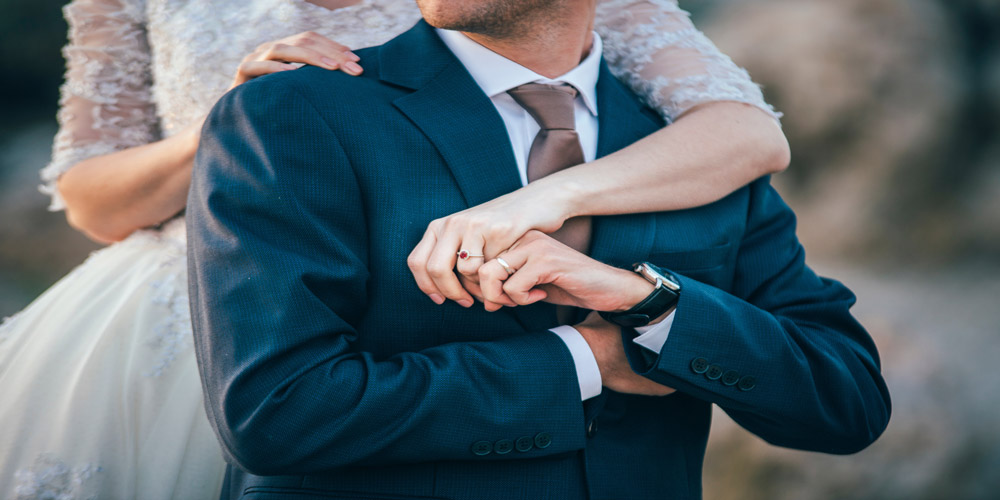The Essential Role of the Groom When Planning a Wedding
When it comes to planning a wedding, it’s not just the bride who carries the load anymore. Modern weddings have evolved to become a collaborative effort, with both partners actively involved in making their big day as special as possible. Gone are the days when the groom’s only duty was to show up in a well-fitted suit – today’s grooms play a significant role in the wedding planning process.
In this post, we’ll explore the essential role of the groom in planning a wedding.
- Sharing the Vision: A successful wedding is one that reflects the personalities and desires of both partners. The groom plays a crucial role in sharing his vision and ideas for the wedding. This includes discussing themes, color schemes, venues, and the overall atmosphere. By sharing the vision, the groom ensures that the wedding is a true representation of the couple.
- Budgeting and Finance: Wedding costs can quickly spiral out of control. Grooms have a responsibility to be actively involved in budget planning, cost management, and financial decision-making. Working together to create a budget and sticking to it will prevent unnecessary stress down the road.
- Guest List and Invitations: Compiling the guest list is a task that should involve both partners. Grooms can help by reaching out to their side of the family and friends, ensuring that no one is overlooked. They can also participate in designing or selecting invitations and RSVP management.
- Choosing the Wedding Party: Selecting the wedding party is a shared responsibility. Grooms can choose their best man and groomsmen, which is an essential aspect of the wedding planning process. It’s a chance to involve close friends and family in a significant way.
- Vendors and Suppliers: The groom’s involvement in selecting vendors like photographers, caterers, and florists is critical. He can assist in meeting with potential suppliers, negotiating contracts, and ensuring that their services align with the couple’s vision.
- Logistics and Transportation: Grooms often handle logistical aspects of the wedding. This includes transportation arrangements for the wedding party, booking accommodations for out-of-town guests, and ensuring everything runs smoothly on the big day.
- Wedding Attire: While the bride’s dress is a focal point, the groom’s wedding suit is equally important. Grooms can take an active role in selecting their attire, coordinating with the bride, and making sure they look their best on the wedding day.
- Emotional Support: Planning a wedding can be a stressful endeavor, and grooms play a vital role in offering emotional support to their partners. Being there to listen, provide reassurance, and share the excitement of the wedding preparations is essential.
- Personal Touches: Grooms can add their personal touches to the wedding by incorporating their hobbies, interests, or cultural traditions. These unique elements can make the celebration even more special and memorable.
- Taking Care of Legal Requirements: Grooms often handle the legal aspects of marriage, such as acquiring the marriage license and ensuring all necessary paperwork is in order.
The groom’s role in wedding planning has transformed over the years from a passive one to an active and integral part of the process. By actively participating in various aspects of wedding planning, grooms can contribute to creating a wedding day that truly represents the love, commitment, and unique personalities of the couple.
Planning a wedding together not only eases the workload but also strengthens the bond between the bride and groom, setting the stage for a beautiful journey into married life.

kyak xyandanxvurulmus.ZNtxMAANmEDj
sexx vurgunyedim.XzRrrc0JjMbE
porn sex yaralandinmieycan.v2yLyoIBbSmq
bahis siteleri incest category citixx.QJZ1JANzjqj5
porno hyuqgzhqt.UueIxtTEs6Zj
porno izle ewrjghsdfaa.KdZy5N7ZmJu6
am siteleri wrtgdfgdfgdqq.WJ3FbXFsiTwG
anal siteleri wrtgdfgdfgdqq.YGXCqC64FqQP
bahis siteleri porn wrtgdfgdfgdqq.UbCV6ERz6OlM